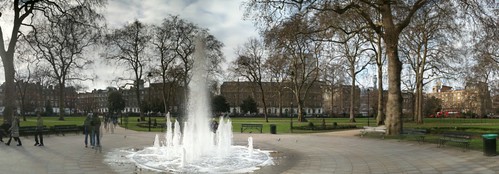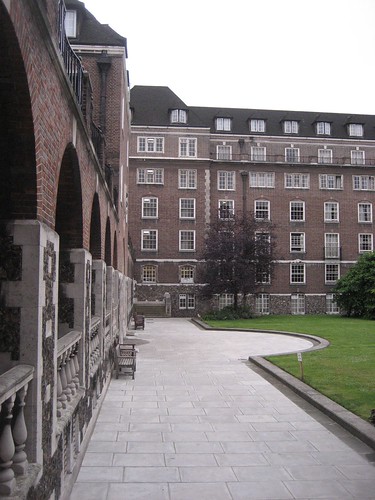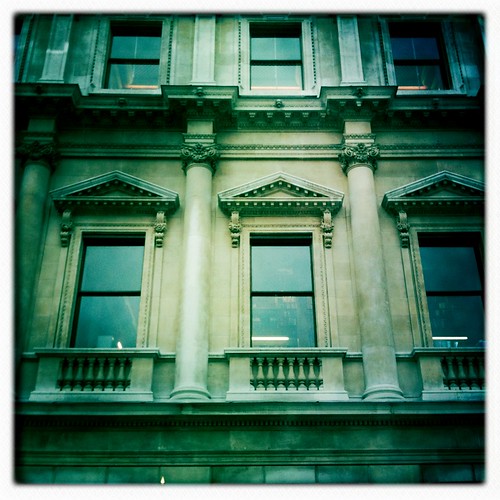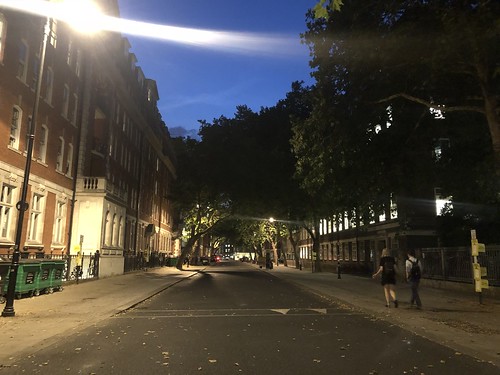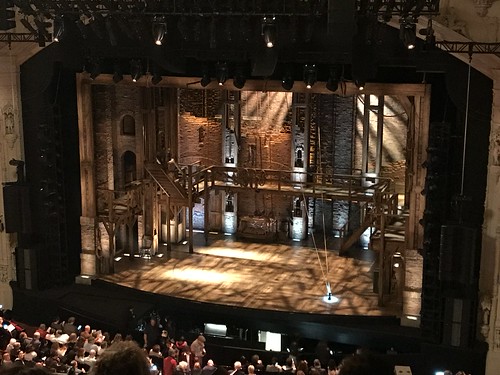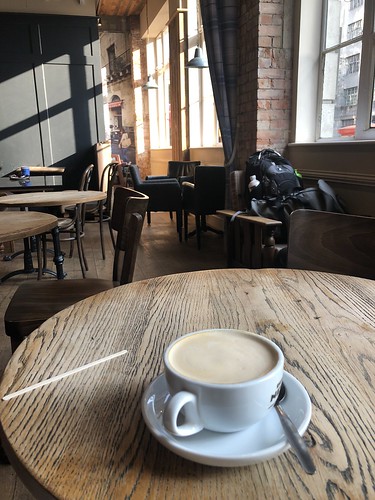I’m just back from a couple weeks in England, and while I spent some time in Cambridge (where my wife is a dean in a summer program) and Southampton (where I was doing some work in the Mountbatten papers), I was mainly in London, and staying in Russell Square.
I realized on this trip that I almost always stay in Russell Square, ever since I first visited London as a graduate student in 1989. I was doing my dissertation research, and discovered Goodenough College, a place near Russell Square that hosts international students and visiting scholars. (One of the features of academic life in London is that there are halls or “colleges”– essentially single buildings or groups of buildings– that aren’t connected exclusively to one institution, and so can have people who are studying at SOAS, LSE, etc. It’s like if there were a dorm in New York City that had students who were attending Columbia, NYU, Cooper Union, and CUNY.)
Back then, it was attractive because it was cheap, though to be honest I barely remember the accommodations; I would get into the Royal Astronomical Society archive at opening time, stay until it closed, then stagger out mentally exhausted.
But the habit of staying in Russell Square stuck me with me. It’s on the Piccadilly Line, so if you come in from Heathrow you just get on the Tube and ride it to the Russell Square station; if you need to get to Cambridge, it’s a short ride (or longer walk) to King’s Cross; and of course it’s the home of the British Museum, the Bloomsbury group, and the University of London and its various colleges.
The last time I was here, my wife and I stayed in the Hotel Russell, a wonderful Victorian hotel; it’s since become The Prestige and charges 21st-century prices, so we opted for one of the many little places on Bedford Street (all of which are in converted townhouses, and almost all of which seem to be owned by the same company). My last couple nights, I tried something new, and through a service called University Rooms, found College Hall, a dorm that rents rooms to tourists during the summer. It turned out to be a great deal: yes, it’s a dorm so it’s a bit spartan in terms of accommodation, but it’s also literally up the block from the British Museum.
Staying in the one neighborhood has also proved to be a good strategy because it’s allowed me to get to know the area pretty well, and to know where to go for the cheap lunches, where the supermarket is, etc.. All too often you need up spending enormous amounts of money eating out because it feels like too much trouble to come up with alternatives; I’m very happy to eat and sleep more modestly if it means being able to stay in a place another day, or spend my money on other things (like tickets to the London Hamilton, which my wife and I went to).
There’s a very interesting study of the impact of living abroad on the creativity of fashion houses directors, and it concluded that living abroad can boost long-term creativity, so long as you can spend more of your time studying the local arts, honing your craft, etc., rather than learning the language and navigating the bureaucracy.
I think a similar principle can be applied to trips like these. Simply being in London is stimulating, lets me meet all kinds of cool people, and gets my creative juices flowing; I don’t need to additional cognitive work of figuring out where to get dinner, or trying to get to all the places that the guidebook says are the hottest new restaurants. (Living in the Bay Area helps a lot: if I want world-class [insert name of cuisine here], I can probably bike to it.) Simplifying the logistics of travel makes it easier for me to spend time on the things that will be more valuable.
